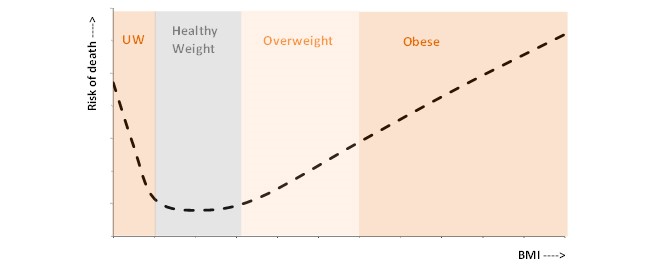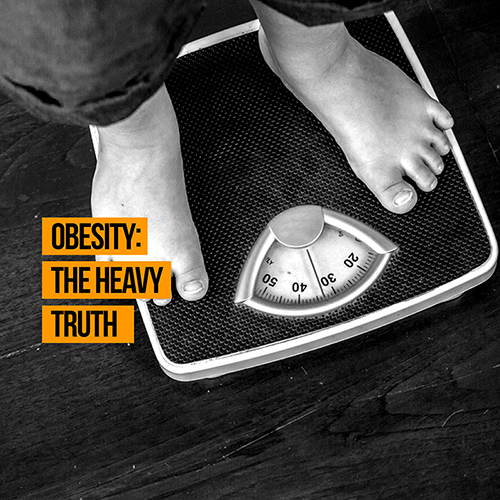We all know we’re supposed to exercise daily, eat our five a day and stay away from fizzy drinks. Yet we don’t. Choosing to order that easy takeaway over cooking a healthy meal is not a hard decision for most to make. One takeaway isn’t going to kill you (unless you get really unlucky) and one fizzy drink every couple of days isn’t going to kill you. But when you look at the cumulative effect of those easy takeaways, the cans of pop every lunchtime, taking the car instead of walking etc it’s easy to see that overtime, they just might be the things that DO put you in the ground.
Obesity in the UK is fast becoming one of the leading causes of ill health in the UK after being linked as one of the top five contributing factors to a third of cancers. There has been a significant rise in the number of obesity related illnesses and by 2015 it is predicted that obesity will cost the NHS £6.4 billion pounds. That’s a rather hefty amount of the UK’s money that is being spent on an easily preventable illness.
Obesity: The Fact
Obesity in the UK is quite clearly a BIG problem.
% of population who are overweight or obese in the UK:

Of all children surveyed in the UK, the age group who have the highest rate of obesity are those aged between 5-9 years old. The World Health Organisation (WHO) believes that childhood obesity is one of the most serious global public health challenges for the 21st century. Children who are obese are more likely to develop serious health problems as adults. Of all adults surveyed in the UK, the age group who have the highest rate of obesity are those aged between 60-64 years old. Another worrying fact is that women who earn a low income are more likely to be obese which gives credit to the theory that cheap, high fat, high sugar diets are to blame for high obesity levels.
Schematic illustration of the association between mortality rate and BMI for adults.

There is much evidence which demonstrates that obesity measured by either BMI or waist circumference is a good predictor of an individual’s risk of death. Higher risks of death can be seen in the lower (underweight) and upper (obese) BMI categories than in the middle categories. As you can see from the illustration, adults with a high BMI have the highest risk of death of all the categories.
Top Five Obese Countries:
Obesity is fast becoming a serious problem but it’s not just the UK that is suffering. Here’s how we compare with the rest of Europe.
% of population who are overweight or obese in Europe

As you can see from the table, UK men are weighing in as the fifth most obese country in Europe with UK women overtaking them and coming in third. Shockingly, a massive 30% (2.1 billion people) of the planet are now classed as obese.
Causes of Obesity:
A lot has changed over the years and advances in almost every kind of technology have made our lives much easier, which has undoubtedly made us much lazier. Other contributing factors include a rise in high fat and high sugar diets, lack of appropriate physical exercise, increasing number of fast food chains, comfort eating, a lack of basic understanding regarding nutrition and also medical and genetic factors.
Health Problems Linked to Obesity:
The list of health problems associated with obesity is long and it doesn’t appear to be getting any shorter any time soon with UK Brits weighing on average a whopping 3 stone more than compared to 50 years ago. Some of the major health problems associated with obesity are as follows:
- Heart Disease and Stroke
- Diabetes
- High Blood Pressure
- Arthritis
- Sleep Apnoea
- Stress and Depression
- Infertility
Ways to Tackle Obesity:
Obesity is not only ruining the lives of its sufferers, it is also proving to be a massive financial strain on the UK economy. Recognising this the government have begun to take action not only to solve the immediate problem with a £30 million grant to improve cycle paths and playgrounds, but also to help prevent obesity in the future by pledging £280 million to the school meal plan.
The Department for Education and Skills have also created the School Food Trust which is a £60 million initiative which aims to provide support and advice to school administrators to improve the standard of school meals. Chocolate, crisps and sweets have been removed from primary school dinners with children eating more fruit and vegetables at lunchtime.
Celebrity chef campaigns from Jamie Oliver, Gordon Ramsay and Heston Blumenthal have taken shape to try and encourage healthy eating by the release of recipe cookbooks, TV shows and petitions. Mainstream media is also doing its part to raise awareness of obesity by airing more graphic TV shows which show the effects of obesity and also action plans to tackle the illness. Such shows include ‘Obese: A Year To Save My Life’, ‘Supersize vs Superskinny’ and ‘Embarrassing Bodies’.
The rise in popularity of social health groups is also another way to tackle the problem. Weight loss groups such as Weight Watchers and Slimming World are becoming more popular and the rise of low cost gym memberships have made gym life and support available to a wide range of low income families who could not previously afford to access these facilities.
Recommended Physical Activity Levels:
Maintaining a healthy lifestyle to avoid obesity and the health risks that come with it, should include both a healthy meal plan and a minimum amount of physical exercise. As stated by the NHS here is the recommended amount of physical activity we should each be doing to keep a healthy lifestyle:
- Children under 5 should complete 180 minutes every day
- Young people aged 5-18 should complete 60 minutes every day
- Adults aged 19-64 should complete 150 minutes every week
- Older adults aged 65+ should complete 150 minutes every week
Lowering the Risks:
It goes without saying that partaking in regular physical activity is great for your health but it is also fantastic for your mind too. Research shows physical activity can boost self-esteem, mood, sleep quality and energy levels! Anything from a gentle walk in the park to a full on High Intensity Interval Training (HIIT) session will get your heart rate up and keep your body and mind in great shape. It is medically proven that people who partake in regular physical activity have:
- 35% lower risk of coronary heart disease
- 35% lower risk of stroke
- 50% lower risk of colon cancer
- 68% lower risk of hip fracture
- 30% lower risk of depression
- 30% lower risk of dementia
To check your BMI and see where you weigh in at you can use the BBC’s BMI calculator tool. And don’t forget to check out PhysioRoom.com’s amazing range of home gym equipment to get you started on your healthy living journey.





